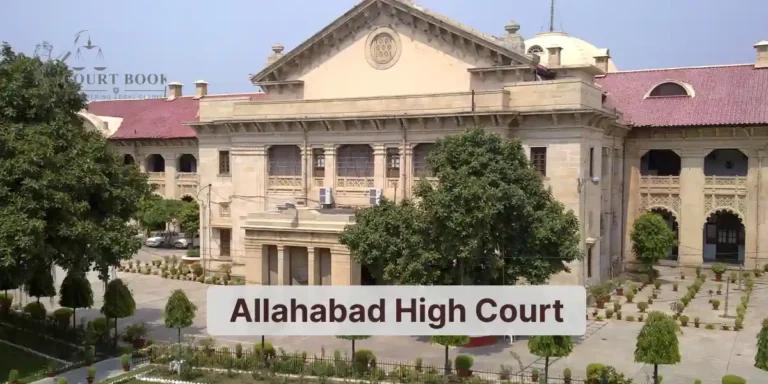The Allahabad High Court has recently reiterated that couples marrying against the wishes of their families do not automatically qualify for police protection unless they can prove a real and imminent threat to their lives or liberty.
The judgment came from a single-judge bench presided over by Justice Saurabh Srivastava, in response to a writ petition filed by Shreya Kesarwani and her husband. The couple had approached the Court, seeking protection and a direction to ensure that their peaceful marital life is not disturbed by their relatives or other private parties.
However, after a close evaluation of their plea and the documents presented, the Court found no substantial evidence to suggest any serious threat from the petitioners' families or private respondents.
"There is no requirement of passing any order for providing police protection to them in light of judgment rendered by Hon'ble the Apex Court in the case of Lata Singh Vs. State of U.P. & Anr. (AIR 2006 SC 2522)," the Court remarked.
Quoting the Supreme Court’s precedent in Lata Singh v. State of U.P., the judge pointed out that:
"The courts are not meant to provide protection to such youths, who have simply fled to marry according to their own wishes."
Read also: Allahabad High Court Summons DCP Over Advocate’s 'House Arrest' During Administrative Judge’s Visit
Justice Srivastava observed that the couple had not presented any material evidence indicating a genuine risk to their safety. The judgment specifically stated:
"There is not even an iota of evidence to evince that private respondents (relatives of either of the petitioners) are likely to cause physical or mental assault to the petitioners."
The Court made it clear that the justice system is available to protect individuals when real danger exists, but it should not be misused as a blanket shield for all runaway marriages.
“In a deserving case, the Court can provide security to the couple, but cannot lend them the support they have sought. They have to learn to support each other and face the society.”
The petitioners also failed to show that they had taken adequate legal steps prior to approaching the Court. There was no record of any formal complaint or FIR filed against the private respondents. The Court emphasized:
"No specific application in the shape of information [was] preferred before the concerned police authorities for lodging any FIR against any illegal conduct... and no heed has ever been paid by the concerned police authorities."
Additionally, there was no mention in the petition of any legal action under Section 175(3) of the Bharatiya Nagarik Suraksha Sanhita (BNSS).
It was acknowledged that the couple had submitted a representation to the Superintendent of Police, Chitrakoot. However, the Court clearly stated:
“In case the concerned police finds a real threat perception, he will do the needful in accordance with law.”
Thus, the responsibility lies with the police to assess whether any real danger exists and to act accordingly, not with the Court to pre-emptively intervene in every matrimonial dispute or social disagreement.
The judgment concluded that protection cannot be claimed as an absolute right by every couple who enters into a marriage without parental approval.
“If any person misbehaves or manhandles them, the Courts and police authorities are there to come to their rescue, but they cannot claim security as a matter of course or right.”
In light of the absence of any serious threat or legal irregularity, the Court disposed of the writ petition without granting police protection.
The Allahabad High Court has drawn a firm line on cases involving young couples who marry against societal or parental expectations. Unless there is clear and present danger to life or liberty, protection cannot be treated as an automatic entitlement. The judiciary will step in when it’s truly needed—but not to endorse avoidance of social responsibilities without credible grounds.
“They have to learn to support each other and face the society.”
This judgment serves as a reminder that while the law protects freedom of choice in marriage, it doesn’t extend to shielding individuals from social backlash unless there's a real, documented threat.
Case title - Shreya Kesarwani And Another vs. State Of U.P. And 3 Others 2025















